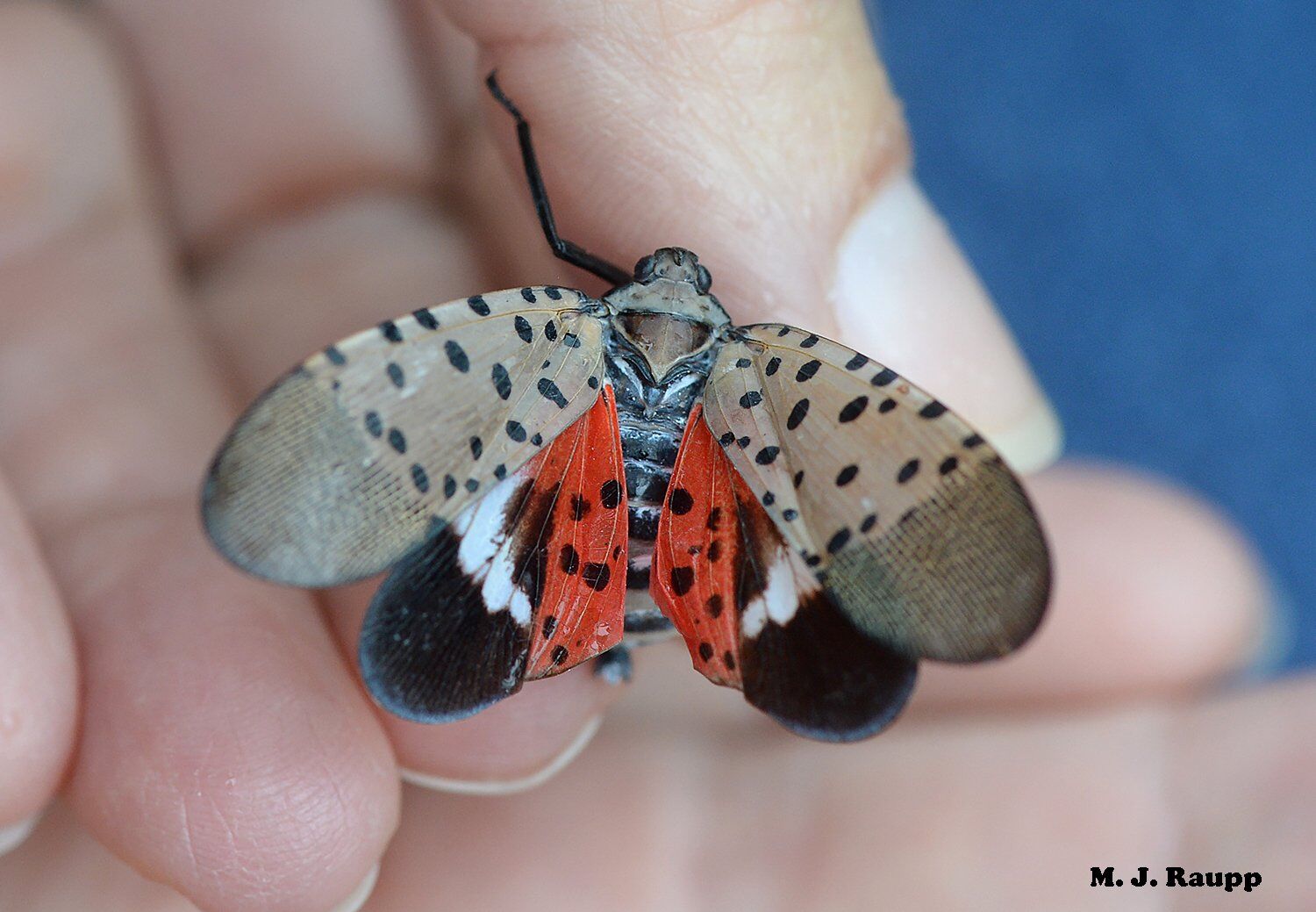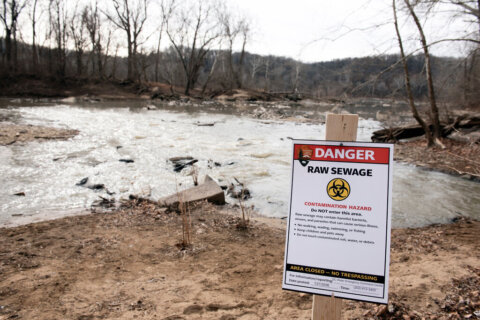
The spotted lanternfly is back for another season, and it appear all signs are pointing to this invasive species staying in the U.S. for good.
Entomologist Mike Raupp, professor emeritus at the University of Maryland who is also known as “The Bug Guy,” said after stowing away on cargo and arriving in Pennsylvania back in 2014, these insects have spread to 14 states, including Maryland and Virginia.
“I think the genie’s out of the bottle on this one, and I’m afraid the spotted lanternfly really is here to stay,” Raupp said.
The bad news about this bug is the stuff it excretes. After it sucks up sap from trees, spotted lanterflies douse the plants in its excrement, a honey-like substance known as “honeydew.” It “fouls stuff below,” such as grapes, peaches and apples, according to Raupp.
The bug has hit vineyards hard, and Raupp said it also appears that the insect could affect the beer industry too, as they seem to really love hops.
He said honeydew also can make leaves black, which allows for plant-killing fungi to target the plant.
Another downside is the honeydew also attracts bugs, such as yellowjackets and hornets that sting people.
Raupp said while people are still encouraged to squash the flies when they see them and scrape away egg masses, he said new research shows most of the bug’s eggs are laid in places where people can’t reach. That means most of them will hatch and survive.
Raupp said for homeowners, there are ways to target the bugs you see in your garden.
“You can use things like horticultural spray oil, say for insecticidal soap, neem oil, or even things like pyrethrin will be highly effective. They’ll give good to excellent control of these tiny spotted lanternflies,” Raupp said.
States are also encouraging people to check a long list of items before they move to prevent the insects from hitching a free ride to a new locale.
States have also established quarantines, which force businesses that move items that the bugs like to latch onto to follow special instructions, and in some cases, get permits to move those materials.
Although it sounds bleak, Raupp said there is some good news. In the areas first infested by the spotted lanternfly, such as central Pennsylvania, populations of the bug are diminishing. One reason is “Mother Nature’s hit squad,” according to Raupp, is on the job.
“Praying mantises, things like assassin bugs in arthropods, like spiders, are now beginning to attack the spotted lanternfly populations and cause those populations to collapse,” Raupp said.
Also, a naturally occurring fungus found in the soil, which is affecting other insects, is proving harmful to the spotted lanternfly.
Raupp said it’s too bad this good-looking bug is causing so much destruction.
“This bug is drop-dead gorgeous, as far as I’m concerned. And if it wasn’t such a nuisance and created so much damage, I would say welcome to America,” Raupp said.








